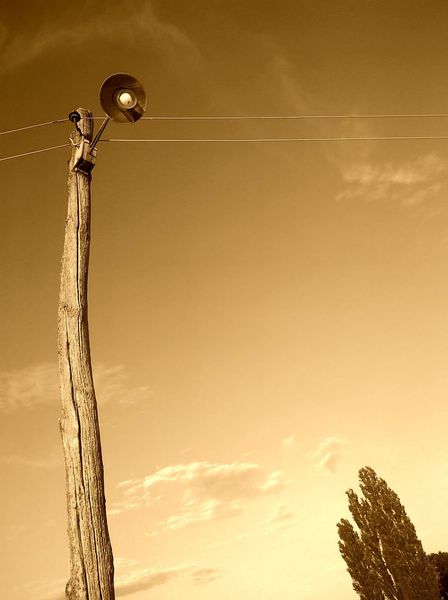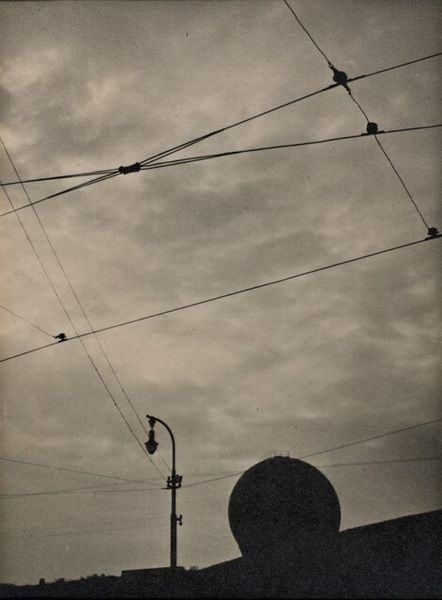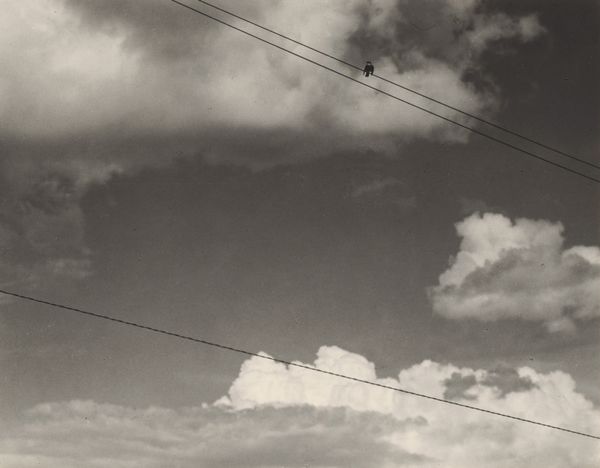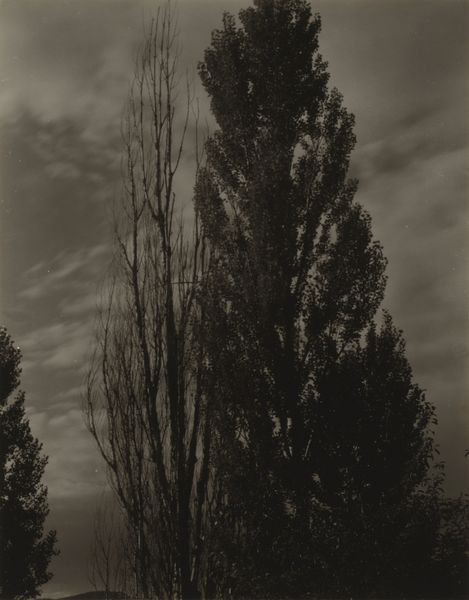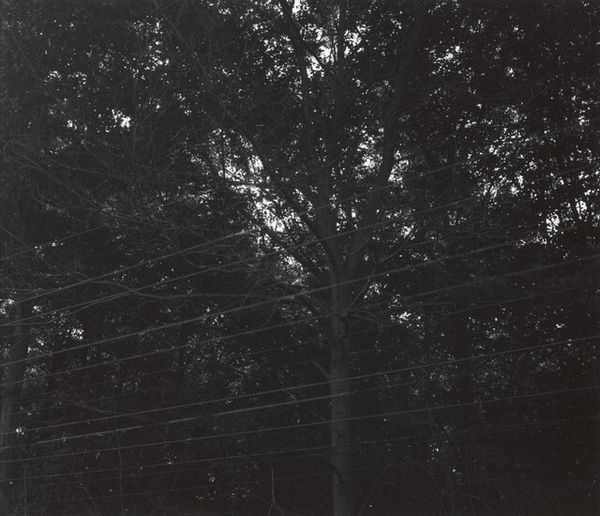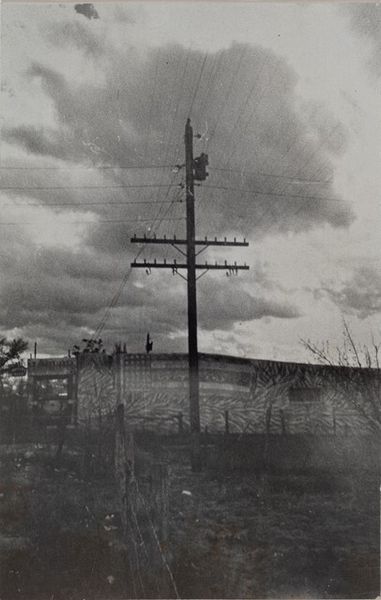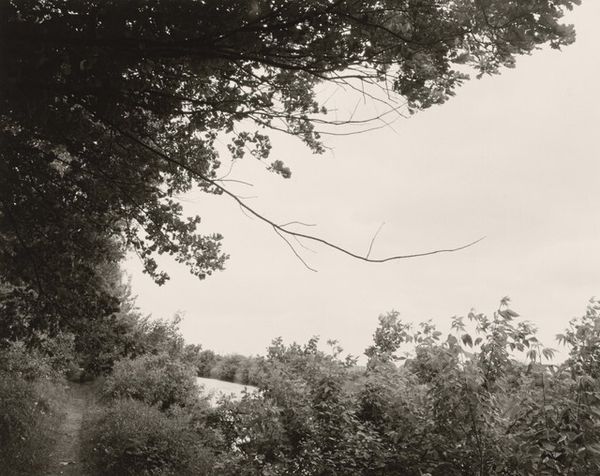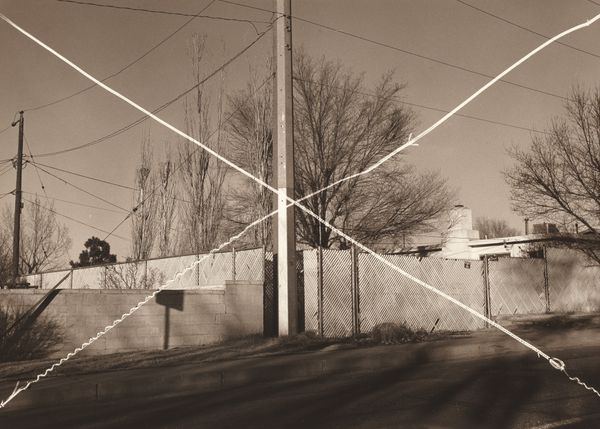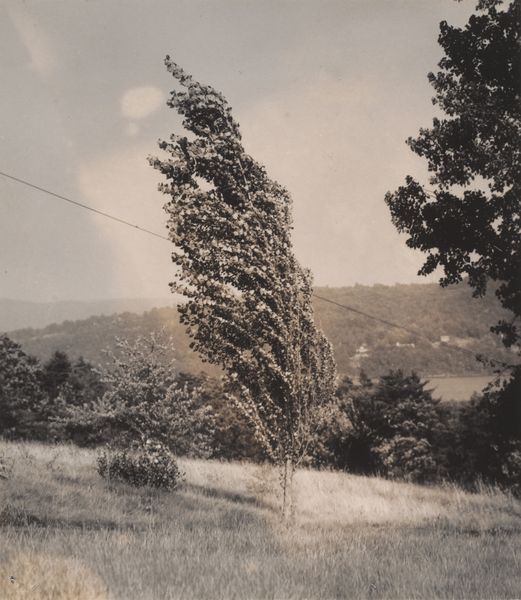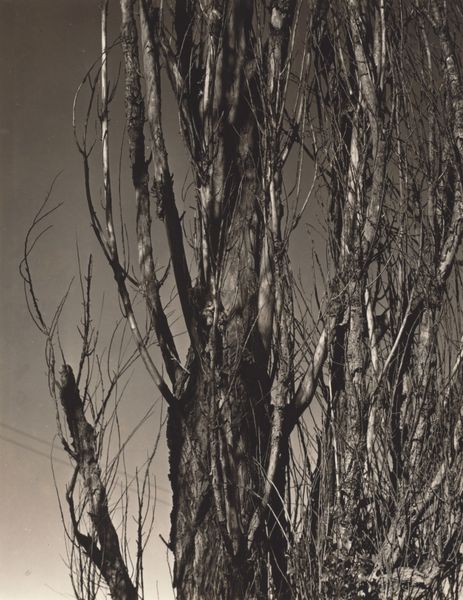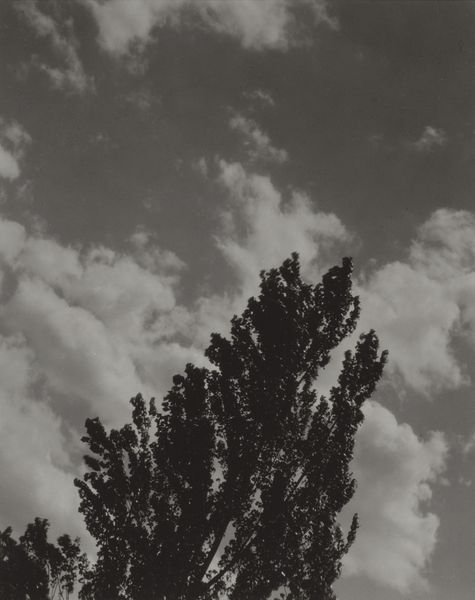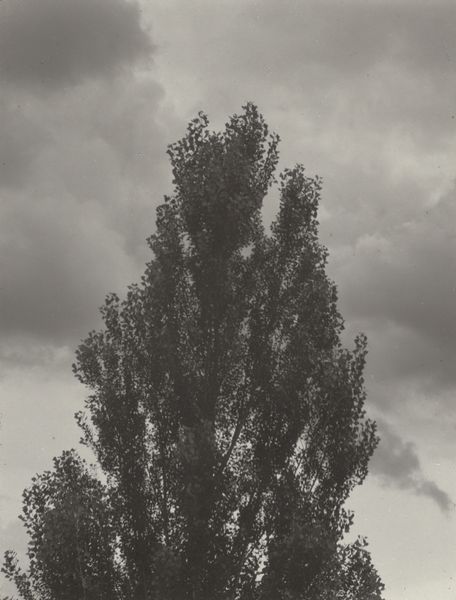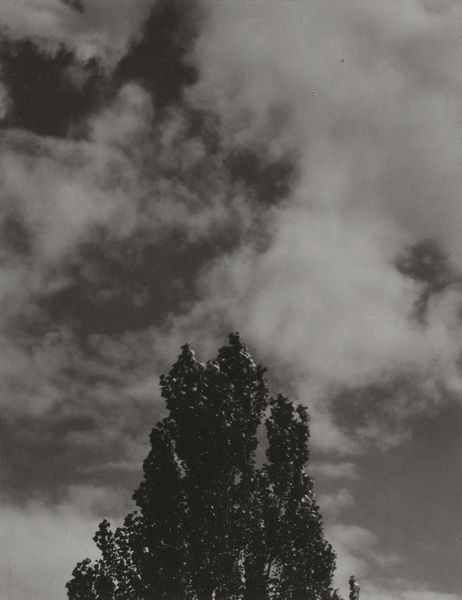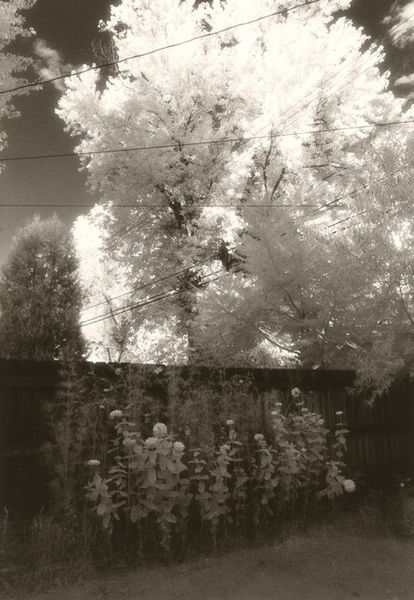
photography
#
conceptual-art
#
organic shape
#
landscape
#
nature
#
photography
#
outdoor scenery
#
neo-dada
#
geometric
#
black-mountain-college
#
nature
Copyright: National Gallery of Art: CC0 1.0
Curator: Here we have Robert Rauschenberg's photograph, "Chinese Summerhall," created in 1983. Editor: There's a strangely ominous feel about it. A muted palette, the severe angles of the wires bisecting the sky... It feels heavy, even a little claustrophobic despite being an outdoor scene. Curator: The composition is compelling, isn't it? These almost skeletal trees framed by darker foliage. The starkness juxtaposed with nature evokes a feeling of... interruption. It feels symbolic. Editor: Exactly. Look at how the power lines are interwoven. They feel parasitic, feeding off these organic forms. The trees are literally bound. In 1983, the West was waking up to the effects of industrial expansion in developing nations. I see echoes of those power dynamics in this image. Curator: Interesting point. One could interpret the geometric precision of the wires against the irregular growth of the trees as a struggle between the artificial and the natural world. These lines symbolize human progress—our advancements but also our imposition on the landscape. Editor: Right, and how that imposition is rarely, if ever, a neutral act. When we overlay these grids of power – literal and metaphorical – onto natural spaces, what are the social costs? Who benefits, and who is left in the shadows, much like the lower half of this frame? Curator: Visually, the photograph works beautifully, as a document and an act of resistance, capturing a particular moment, not just in time but within a cultural landscape. The eye keeps getting pulled back, searching, towards this kind of… visual tension. Editor: Absolutely. It forces us to consider what 'progress' truly entails when juxtaposed against a scene stripped bare of romantic idealism. It questions whether modernization benefits all, or if, it too, is simply another form of binding. Curator: Well, that certainly offers much food for thought about progress and visual metaphors that bind nature in the Anthropocene age. Editor: Yes. It’s an uncomfortable mirror reflecting back our complex legacy of technological innovation.
Comments
No comments
Be the first to comment and join the conversation on the ultimate creative platform.
